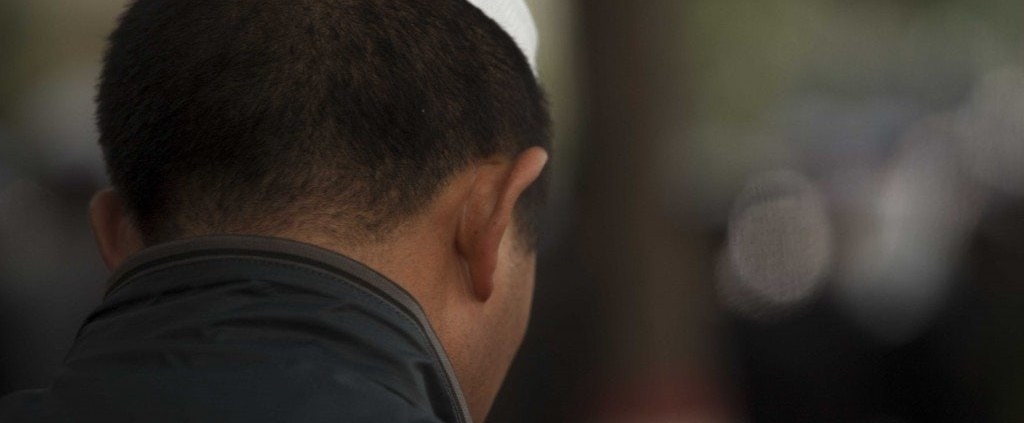Must I Make Up Prayers I Missed Before I Left And Then Returned to Islam?
Hanafi Fiqh
Answered by Shaykh Yusuf Weltch
Question
Does a person who left Islam then returned to it have to make-up prayers missed accrued before leaving Islam?
Answer
In the Name of Allah, the Most Merciful and Compassionate
Yes. If a Muslim missed prayers, then left Islam, then returned to Islam, they must make up those prayers that were missed whilst they were Muslim. [Ibn ‘Abidin, Radd al-Muhtar]
The principle in this regard is as follows:
“Every prayer that was missed after having been obligatory must be made up. This applies regardless of whether the prayer was missed intentionally, unintentionally, or because of oversleeping; likewise, it applies regardless of the amount of missed prayers.” [Ibid.]
That said, when the prayer was missed, you were a Muslim, and that prayer was obligatory. Therefore it is obligatory to make up such a prayer once returning to Islam. [Ibid.]
Note that any prayers not prayed during disbelief are not made up as the details of the Sacred Law do not apply to non-muslims. Non-muslims are only charged with accepting belief. [Ibid.]
Advice
Even though the amount of prayers one must make up may be a lot, one can take their time and slowly chip away at them. Designate a daily portion of prayers to make up that you can handle, intend to make them all up, and stick to that daily portion until they are all made up.
Hope this helps
Allah knows best
[Shaykh] Yusuf Weltch
Checked and Approved by Shaykh Faraz Rabbani
(قَوْلُهُ وَالتَّرْتِيبُ بَيْنَ الْفَائِتَةِ وَالْوَقْتِيَّةِ وَبَيْنَ الْفَوَائِتِ مُسْتَحَقٌّ) مُفِيدٌ لِشَيْئَيْنِ أَحَدُهُمَا بِالْعِبَارَةِ وَالْآخَرُ بِالِاقْتِضَاءِ أَمَّا الثَّانِي فَهُوَ لُزُومُ قَضَاءِ الْفَائِتَةِ فَالْأَصْلُ فِيهِ أَنَّ كُلَّ صَلَاةٍ فَاتَتْ عَنْ الْوَقْتِ بَعْدَ ثُبُوتِ وُجُوبِهَا فِيهِ فَإِنَّهُ يَلْزَمُ قَضَاؤُهَا سَوَاءٌ تَرَكَهَا عَمْدًا أَوْ سَهْوًا أَوْ بِسَبَبِ نَوْمٍ وَسَوَاءٌ كَانَتْ الْفَوَائِتُ كَثِيرَةً أَوْ قَلِيلَةً فَلَا قَضَاءَ عَلَى مَجْنُونٍ حَالَةَ جُنُونِهِ مَا فَاتَهُ فِي حَالَةِ عَقْلِهِ كَمَا لَا قَضَاءَ عَلَيْهِ فِي حَالَةِ عَقْلِهِ لَمَّا فَاتَهُ حَالَةَ جُنُونِهِ وَلَا عَلَى مُرْتَدٍّ مَا فَاتَهُ زَمَنَ رِدَّتِهِ وَلَا عَلَى مُسْلِمٍ أَسْلَمَ فِي دَارِ الْحَرْبِ وَلَمْ يُصَلِّ مُدَّةً لِجَهْلِهِ بِوُجُوبِهَا وَلَا عَلَى مُغْمًى عَلَيْهِ أَوْ مَرِيضٍ عَجَزَ عَنْ الْإِيمَاءِ مَا فَاتَهُ فِي تِلْكَ الْحَالَةِ وَزَادَتْ الْفَوَائِتُ عَلَى يَوْمٍ وَلَيْلَةٍ وَمِنْ حُكْمِهِ أَنَّ الْفَائِتَةَ تُقْضَى عَلَى الصِّفَةِ الَّتِي فَاتَتْ عَنْهُ إلَّا لِعُذْرٍ وَضَرُورَةٍ فَيَقْضِي الْمُسَافِرُ فِي السَّفَرِ مَا فَاتَهُ فِي الْحَضَرِ مِنْ الْفَرْضِ الرُّبَاعِيِّ أَرْبَعًا وَالْمُقِيمُ فِي الْإِقَامَةِ مَا فَاتَهُ فِي السَّفَرِ مِنْهَا رَكْعَتَيْنِ كَمَا سَيَأْتِي فِي آخِرِ صَلَاةِ الْمُسَافِرِ وَقَدْ قَالُوا إنَّمَا تُقْضَى الصَّلَوَاتُ الْخَمْسُ وَالْوِتْرُ عَلَى قَوْلِ أَبِي حَنِيفَةَ وَصَلَاةُ الْعِيدِ إذَا فَاتَتْ مَعَ النَّاسِ عَلَى تَفْصِيلٍ يَأْتِي فِي بَابِهَا وَسُنَّةُ الْفَجْرِ تَبَعًا لِلْفَرْضِ قَبْلَ الزَّوَالِ وَالْقَضَاءُ فَرْضٌ فِي الْفَرْضِ وَاجِبٌ فِي الْوَاجِبِ سُنَّةٌ فِي السُّنَّةِ ثُمَّ لَيْسَ لِلْقَضَاءِ وَقْتٌ مُعَيَّنٌ بَلْ جَمِيعُ أَوْقَاتِ الْعُمْرِ وَقْتٌ لَهُ إلَّا ثَلَاثَةً وَقْتُ طُلُوعِ الشَّمْسِ وَوَقْتُ الزَّوَالِ وَوَقْتُ الْغُرُوبِ فَإِنَّهُ لَا تَجُوزُ الصَّلَاةُ فِي هَذِهِ الْأَوْقَاتِ لِمَا مَرَّ فِي مَحَلِّهِ
——–
ص86 – كتاب البحر الرائق شرح كنز الدقائق ومنحة الخالق وتكملة الطوري – الترتيب بين صلاة الفائتة والوقتية وبين الفوائت
Shaykh Yusuf Weltch is a teacher of Arabic, Islamic law, and spirituality. After accepting Islam in 2008, he completed four years at the Darul Uloom seminary in New York, where he studied Arabic and the traditional sciences. He then traveled to Tarim, Yemen, where he stayed for three years studying in Dar Al-Mustafa under some of the greatest scholars of our time, including Habib Umar Bin Hafiz, Habib Kadhim al-Saqqaf, and Shaykh Umar al-Khatib. In Tarim, Shaykh Yusuf completed the memorization of the Qur’an and studied beliefs, legal methodology, hadith methodology, Qur’anic exegesis, Islamic history, and several texts on spirituality. He joined the SeekersGuidance faculty in the summer of 2019.
